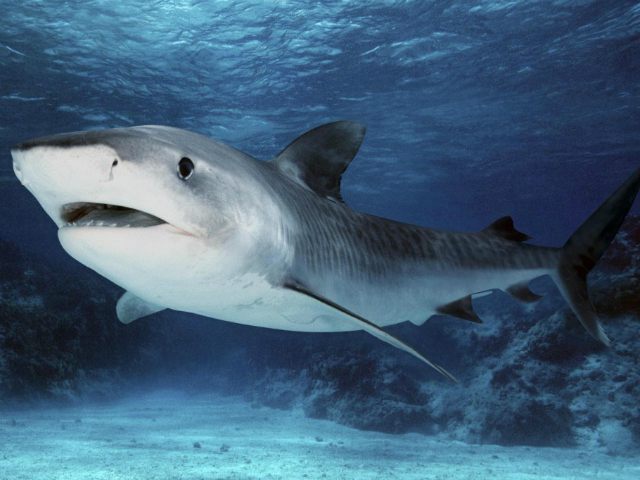A series of shark attacks of the coast of North Carolina has elicited concern from local government officials but protests from shark experts of the sharks’ diminishing numbers.
Seven shark attacks have occurred near North Carolina this summer, including one on Wednesday. The victim was Andrew Costello, 68, a former Boston Herald editor-in-chief in Ocracoke Island. That attack followed an attack on a teenager at the Cape Hatteras KOA campground in Rodanthe, N.C., shark attacks in Avon, NC, and near Hunting Island in South Carolina, one involving a 13-year-old girl in Ocean Isle, one with an eight-year-old boy in Surf City, and two in Oak Island. The Oak Island attacks on June 14 involved a 16-year-old boy and 12-year-old girl, each of whom lost an arm.
The International Shark Attack File stated that North Carolina had only recorded 25 attacks between 2005 and 2014. North Carolina Gov. Pat McCrory said the state government is analyzing the cause of the attacks.
David Hallac, NPS’s superintendent of parks on the Outer Banks, said, “We can never guarantee anyone’s safety when they enter the water. The only way to be sure you do not encounter sharks or other marine wildlife that may be harmful to humans is to stay out of the water.”
Evidence drawn from victims indicates the sharks ranged from five to eight feet, which means the sharks could be from different species.
Various shark experts seemed undisturbed by the attacks and more upset about the paucity of sharks in the water.
George Burgess, director of the International Shark Attack File at the University of Florida’s Florida Museum of Natural History said, “Any idea that sharks have come back in large numbers in a few years is patently false. We are better off with healthy shark populations off our coasts than without them.”
David Shiffman, a doctoral candidate at the University of Miami’s R.J. Dunlap Marine Conservation Program, protested, “Any injury or death is a tragedy, but the chances of being bitten by a shark is still a rare occurrence. Thousands of Americans drown when they’re vacationing by the beach. Only one dies a year due to a shark.”
Charles “Pete” Peterson, a joint distinguished professor at the Institute of Marine Sciences at the University of North Carolina at Chapel Hill, who published a study with four colleagues in 2007 arguing that a number of shark species off North Carolina’s coast declined between 1972 and 2003. He said in the period from 2003 to 2014 there was no evidence of increasing numbers of those species.
Yet USA Today reported in June 2014 that a study by the National Oceanic and Atmospheric Administration, published in the journal PLOS ONE, said the population of great white sharks had climbed since about 2000 in the western North Atlantic, largely due to conservation efforts.
Tim Holloman, town manager for Oak Island, N.C., the site of the two attacks on the teenagers, said business has not slowed one whit and the beaches will stay open. But the town is handing out pamphlets, a helicopter from the sheriff’s office will be monitoring the beach this weekend, and two ambulances have been scheduled to be ready in case of an emergency.
Burgess said that various factors could be responsible for the shark attacks: warmer water, the abundance of menhaden, which sharks feed on, and the bait that fisherman drop in the water near piers. He admitted, “Now, does that explain seven attacks in three weeks? No, it doesn’t.”

COMMENTS
Please let us know if you're having issues with commenting.